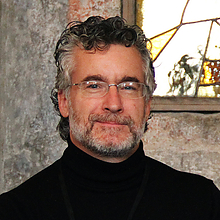Michael Cummings

Michael Cummings is the director of the Center for Bioinformatics and Computational Biology (CBCB) and a professor in the Department of Biology. He also holds an appointment in the University of Maryland Institute for Advanced Computer Studies.
His was the first faculty member hired into CBCB, where he leads the Laboratory of Molecular Evolution. He received his Ph.D. from Harvard University, and did postdoctoral research at the University of California, Berkeley as an Alfred P. Sloan Foundation Postdoctoral Fellow in Molecular Studies of Evolution, and at the University of California, Riverside. He was a scientist at the Marine Biological Laboratory and has held a guest professorship at the University of Konstanz.
He has published extensively in molecular evolution, phylogenetics, computational biology and bioinformatics (including genotype-phenotype relationships using machine learning), computer science (particularly in the area of grid computing), and bioinformatics education. He has lectured extensively throughout the USA and internationally, including Australia, Brazil, Canada, Czech Republic, England, Germany, Korea, México, Portugal, Spain, Sweden, Switzerland, and Wales. Because of his varied expertise he has served the scientific community through participation in numerous national and international committees, panels, symposia, workshops, and advisory boards.
From 2000 through 2011 he directed or co-directed the Workshop on Molecular Evolution, held in Atlanta (at the Centers for Disease Control and Prevention), Fort Collins, Washington (at the National Museum of Natural History, Smithsonian Institution), and Woods Hole in the USA, and Český Krumlov in the Czech Republic. From 2009 through 2011 he has co-directed the Workshop on Comparative Genomics held in Fort Collins and Washington (at the National Museum of Natural History, Smithsonian Institution) in the USA, and Český Krumlov in the Czech Republic. These advanced workshops have trained more than 1200 faculty/principal investigators, postdoctoral scholars, and graduate students from more than 70 countries.
Publications
1991
1991. A superfamily of ıt Arabidopsis thaliana retrotransposons. GeneticsGenetics. 127
1991. Review of Fundamentals of Molecular Evolution, by Li. W.-H. and D. Graur. CladisticsCladistics. 7
1990
1990. The structure, distribution and evolution of the ıt Ta1 retrotransposable element family of ıt Arabidopsis thaliana. GeneticsGenetics. 126
1990. Evolution of avocados as revealed by DNA restriction fragment variation. J HeredJ Hered. 81
